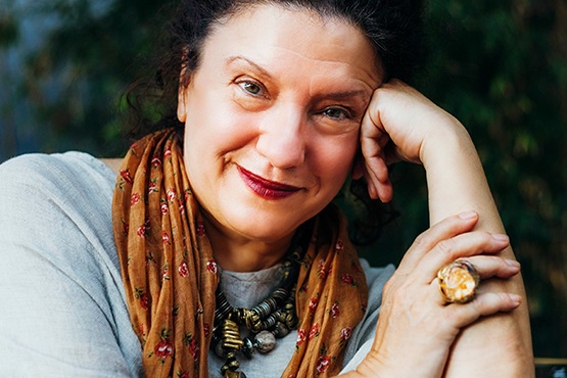New drama: Turkey's state theatre freedoms curbed under presidential system

ISTANBUL - For nearly 70 years, Turkey's state-funded theatre has trained the country’s most famous actors and actresses and brought affordable plays, dancing and opera to the public.
In the past, when politicians tried to interfere in Turkish State Theatres’ productions – to complain about a scene or call for certain writers to be avoided - the organisation has been free to push back and was legally protected from any enforcement.
'There were always interferences by the politicians, but we could say ‘no’... What really mattered was whether they could control us; now they can'
- Lemi Bilgin, former State Theatres director general
But performers and former directors of the institution say they fear two presidential decrees announced this month, weeks after Turkey's shift to the new presidential system with the re-election of President Recep Tayyip Erdogan, could change that.
The first decree, announced on 9 July, dissolved a 1949 law that gave State Theatres autonomy over budgets, which plays would be performed and where it would open new theatres.
Then on 15 July, a second decree introduced a new set of regulations similar to the 1949 law, with one critical exception: State Theatres is no longer an autonomous institution, but is now under the control of the ministry of culture and tourism.
It is not immediately clear what the decrees will mean. State Theatres has denied reports that the government plans to shut down its theatres. The government hasn't made any public statements and current State Theatre employees are prohibited from speaking to the media. Still, the Turkish arts community is concerned.
Lemi Bilgin, who was director general of State Theatres between 1998 and 2013, told Middle East Eye: “There were always interferences by the politicians, but we could say ‘no’. Eventually, they tried more and more to subjugate us, and realised that we were protected by the law. What really mattered was whether they could control us; now they can,” he said.
Decades of resistance
The fear of political interference is not new for State Theatre actors and leaders who said they have faced it before, particularly since the 1980 coup d'etat.
But it has been minimal and the institution has been able to confront such pressures head on, they said.
The actress, director and former State Theatres secretary general Aysenil Samlioglu gave an example from the early 90s when an MP came to see a play in Ankara and complained about a scene to the ministry of culture.
“We didn’t change the scene but they later reduced the number of performances.”
“We were looking for more autonomy, but we're now one step backwards,” Samlioglu said.
“As an institution under the ministry, and as civil servants, we now have to do whatever we're told. But as yet we don’t know what the demands will be.”
Bilgin, an outspoken critic of the AK Party, which has ruled the country since 2002, was dismissed three times from his position by the government as a result of his resistance against political authorities, he said.
“When you call yourself an artist, you have to stand up to any wrongdoing in your country. That’s why we always prepared our repertoire by ourselves,” he said.
During his various tenures, even though the government would ask that plays were changed or that certain well-known writers were avoided, the institution stood strong.
“The people demanded those plays, and I had a lot of discussions with the ministers. Every time they had to accept what the State Theatres' management decided to do,” he said.
At one point, he said, the government attempted to cancel the tour of a play called The Ugly because politicians thought an incestuous relationship featured in the performance was against public morals.
“But actually it wasn’t - they didn’t even see the play or understand it. We resisted and continued our tour," he said.
However, that may now change.
“The reason behind the new decree is to silence any opposition,” he said.
'They cut our ties with the public'
There have been increasing challenges to the institution’s freedom in recent years.
In January, a local civil servant in Batman found India Bankasi, a play written by the French writer Sebastien Thiery, to be obscene. Mustafa Kurt, the current head of State Theatres, insisted that the tour continue but local administrators refused to provide any theatre halls for the artists.
“They reduced the number of plays and they cancelled some in recent years. But the most important thing is that they cut our ties with the public,” said Bilgin.
State Theatres' budgets have always been limited - the ministry of culture and tourism receives around $825m out of a total budget of $175bn. In 2018, less than four percent of that budget was allocated to State Theatres.
Samlioglu said it would be problematic if the government starts deciding what can and can’t be performed.
'Artistic productivity only flourishes in a free environment. If you’re tied up with rules and politics, it’s not possible for you to be productive'
- Aysenil Samlioglu, former secretary general of State Theatres
“In China and the Soviet Union, the rule was to perform any type of arts only in compliance with the state policy. That rule ended productivity in those countries,” she said.
“Artistic productivity only flourishes in a free environment. If you’re tied up with rules and politics, it’s not possible for you to be productive.”
For now, she said, artists would no longer be able to object to the ministry's demands.
“Maybe artistic production will continue as it has,” she said. “But in the new system, all the ministries work under the president, and the president is still working on changes to the system.”
New MEE newsletter: Jerusalem Dispatch
Sign up to get the latest insights and analysis on Israel-Palestine, alongside Turkey Unpacked and other MEE newsletters
Middle East Eye delivers independent and unrivalled coverage and analysis of the Middle East, North Africa and beyond. To learn more about republishing this content and the associated fees, please fill out this form. More about MEE can be found here.






